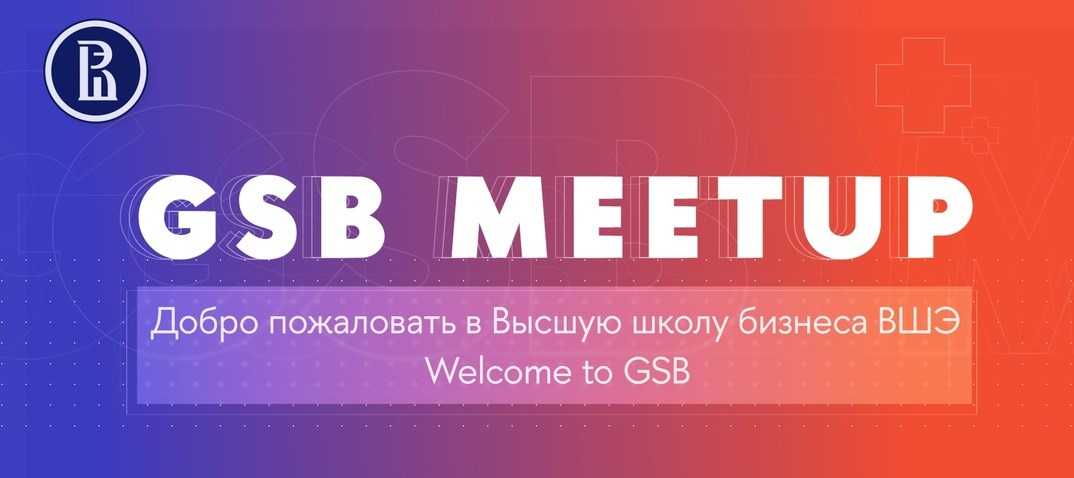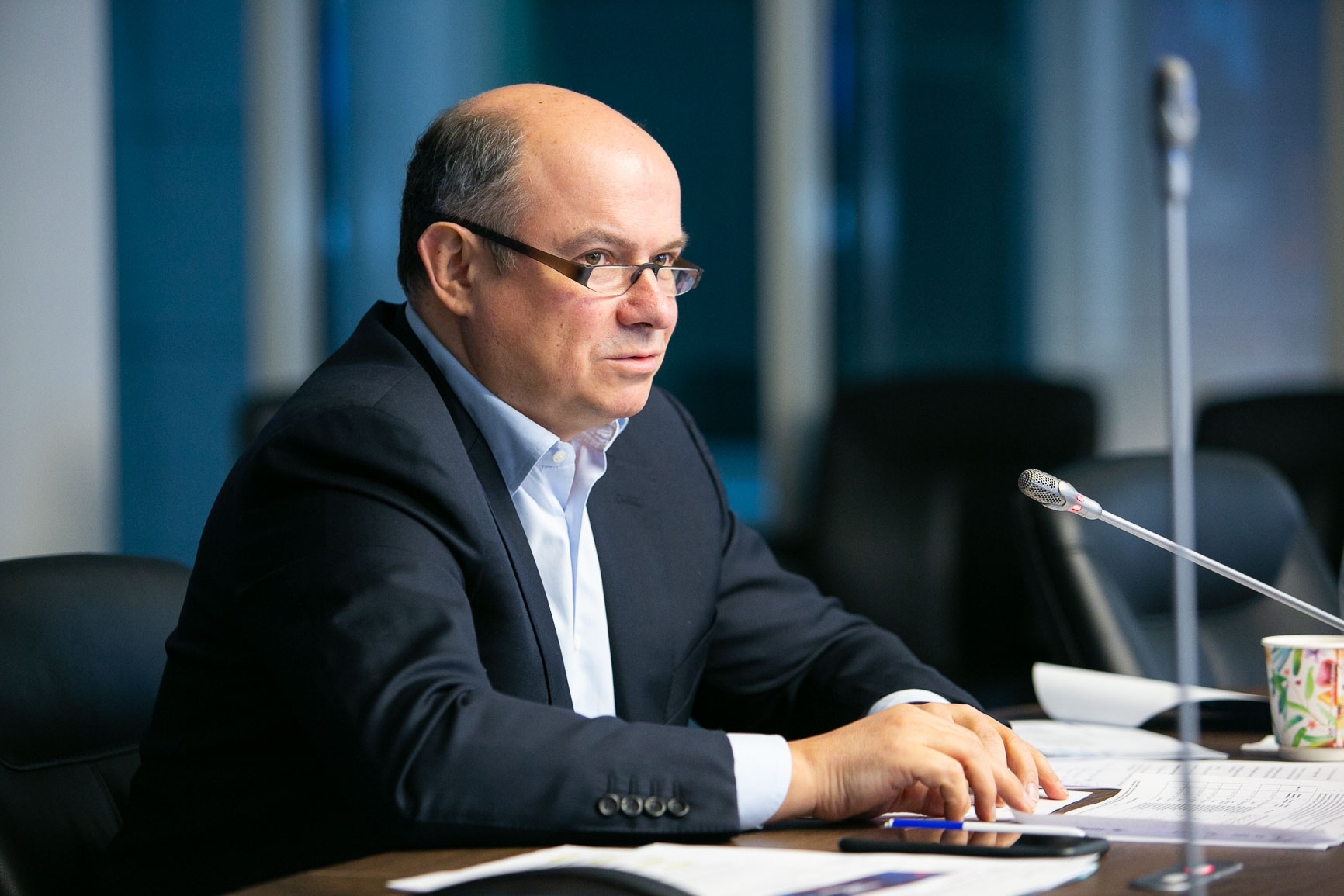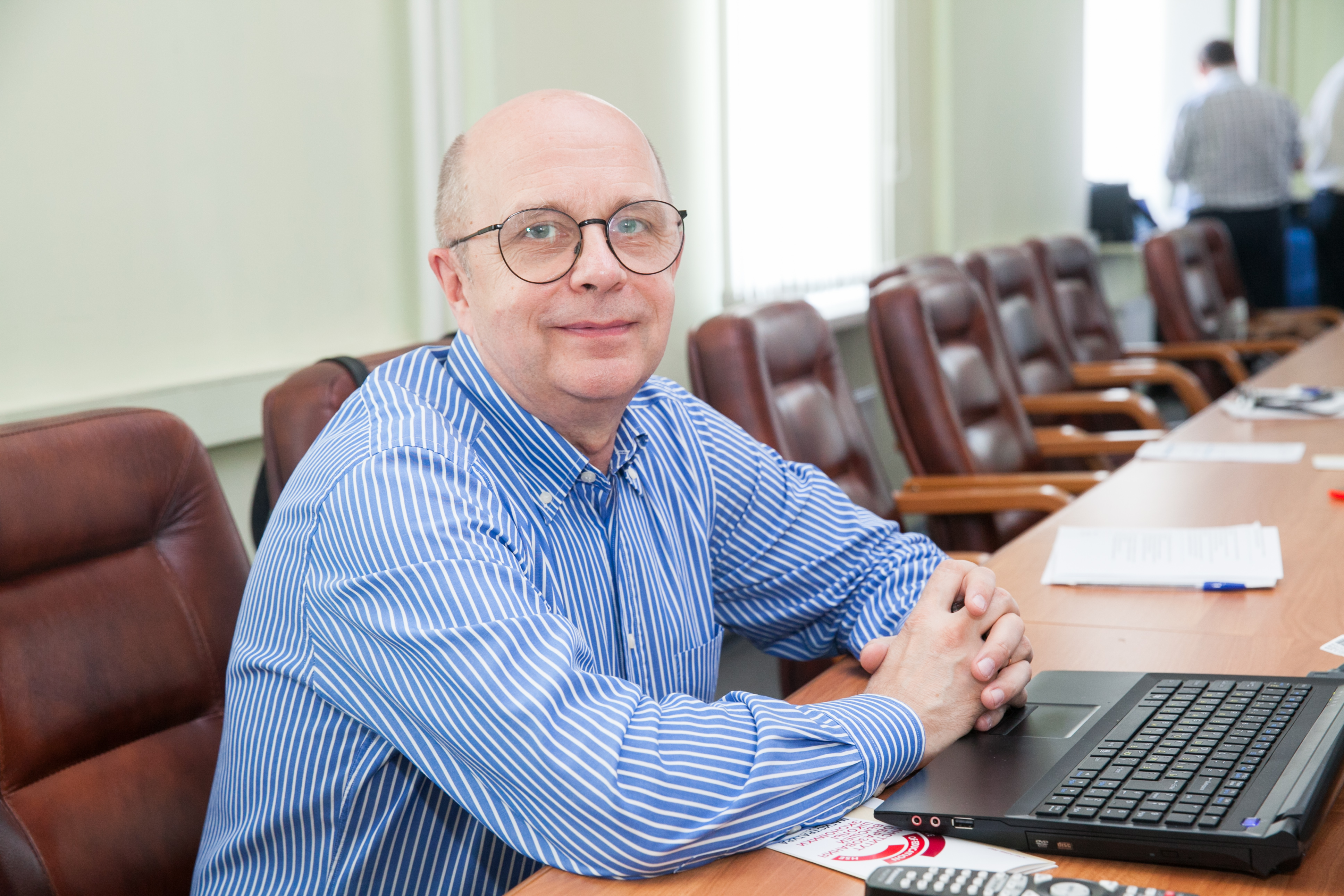‘Any Crisis and Any Shock Should Be Perceived As a New Opportunity’

On December 10, the Graduate School of Business held a large-scale meetup event for GSB professors, current students, alumni, corporate representatives, and anyone interested in the development of business education. Guests of ‘GSB Meetup: Welcome to the Graduate School of Business’ learned what qualities and competencies a modern manager needs, what is new at the HSE Graduate School of Business, and what the future holds for the School.
The GSB meetup offered an eventful programme: expert sessions, conversations about business, and talks by GSB professors and successful alumni.
In conversation with the Dean
During the ‘Challenge for the Dean’ session, Valery Katkalo, Dean of HSE Graduate School of Business, answered questions from alumni. HSE graduates were interested in problems of education in today’s constantly changing world; they asked about the future of GSB and sought the Dean’s advice on success. ‘It is very important for me to maintain constant contact with our successful alumni who have managed to achieve great things in their careers,’ said Valery Katkalo before the session. ‘I hope that studying in the programmes that are now consolidated in GSB contributed to that.’

Natalya Belova, ‘02 graduate of the Masters Programme ‘Strategic Management’, winner of HSE Alumni Award 2020, and Board Member and Market Management Department Director for Rosgosstrakh Life, asked the GSB Dean about how business education will change in 2021. Valery Katkalo pointed out that the next year will become one of the several years when universities and business schools will have to adapt to new modern challenges (and the Covid pandemic is only one of them).
‘Any crisis and any shock should be perceived as a new opportunity to pursue innovative projects and get ahead of yesterday’s leaders. We have had to face a crisis that requires us, on the one hand, to operate more efficiently and implement our ideas for GSB more quickly and, on the other hand, to consider development in new directions. One of these directions is digital skills. We used to talk about hard skills, soft skills, and complementary digital skills that are nice to have. Obviously, there is no clear distinction between hard and soft skills nowadays as digital skills are incorporated into both of those areas.’
Valery Katkalo named areas that require special attention today: the actualization of social skills on a completely new level (creativity, empathy, etc.) and the changing role of business in the modern world.
Anastasia Elagina, 2nd year student, Bachelor’s Programme in Business Administration
It was very interesting for me to work on this project. I would like to thank the organizers of the event for the great work they did. Everyone, including the management, scriptwriters, hosts, designers, and editors, took their tasks very seriously. It was a useful experience for us.
Maksim Chernin, graduate of the Faculty of Business and Management, Board Member at Rosgosstrakh, Chairman of the Board of Directors of Doctor Ryadom, and Executive Director of Team-Drive, asked the Dean about how the GSB is different from similar schools.
‘What makes a successful business school different from others? Probably the fact that it is relevant to the demands of the market,’ replied Valery Katkalo. ‘To stay relevant, a business school needs to be ready for constant change and be continually updating itself. We must understand that the world is changing faster now, and, in the last 20 years, it has become considerably more complex. Nowadays, creativity, digital skills, the ability to work with an ever-changing set of partners and clients – those are the skills that a business-school should teach its students.
Students and alumni
Besides talking to the Dean, HSE graduates of the programmes that are now consolidated in GSB talked about their professional paths after graduating from HSE and the role the University played in their careers.
Olga Filatova, Ex Vice-President for Human Resources and Education Projects, ’04 Graduate of the Master’s Programme ‘Strategic Management’, now teaches at the Graduate School of Business. She pointed out that many experts and practitioners work at GSB, which enriches the learning process there. ‘As a practitioner who has worked in numerous big corporations, I have always heard that an HSE diploma is seen as a sort of a guarantee of quality, which makes me proud. HSE continues to develop and doesn’t lose anything in terms of quality. Students get used to partnership and respect for each other at HSE, which they keep later as work habits, and that is valuable.”
Current students of the Graduate School of Business talked about what life is like at GSB today: they revealed secrets of the Shabolovka campus with the guests, and they talked about past and future events of the business school.
During a practice-oriented digital session of Business Negotiation Club, club head Nikita Teslenko and Director of BROCA & WERNICKE Stanislav Martynov, an expert at negotiating, gave talks.
‘Our club has a core team, the members of which meet new club members and introduce them to our project and its value. They get benefits from attending the club and do not hesitate to share them and show their results,’ said Stanislav Martynov. ‘I really like how fast students nowadays process information. I have taught many people (mainly, adults) and I can say that many adults are not capable to the same extent as our students of processing new information, understanding it correctly, and using it. It is great that students learn so quickly.’
Dmitry Bocharov, Vice President for Internal Control and Audit at Segezha Group, deputy chairman of the Academic Council of the Bachelor’s Programme ‘Business Administration’, and graduate of the Bachelor’s Programme in Management (‘05), the Master’s Programme in Strategic Management (‘07), and HSE’s management doctoral programme (‘11)
It is always nice to come back to HSE and share your experience. Thank you for this opportunity!
The expert in negotiations gave advice to all club members and also all participants of the digital meeting: ‘Do not be afraid to practise, because we give a lot of exercise. Get rid of all your fears if you want to be good in negotiations. Everyone makes mistakes.’
Nikita Teslenko emphasized that many business representatives – potential employers of HSE students – come to the club meetings. ‘We are going to preserve the tradition of inviting guest speakers, and we look forward to seeing you at our next meeting. We hope that in the new year we will have even more members because we understand that maybe now it is not so easy to make time to attend additional or optional events that are not a part of your curriculum. However, we hope that in the coming year you will join us.’
In conversation with business
In a panel discussion entitled ‘It Is Impossible to Stop Learning’, Professor of Practice and Deputy First Vice Rector of HSE Natalya Shumkova talked to HR directors and heads of corporate universities of companies and industry leaders. She asked business representatives if it is possible for an adult to acquire knowledge and skills over the course of their whole life, and how companies involve their employees in learning in the conditions of the new normal.
Evgeny Uyhazi, Director for talent management and staff development and Head of Beeline University, noted that for his company the concept of lifelong learning is a basic concept.
Mariya Kondrahina, 2nd year student, Bachelor’s Programme in Business Administration
I really liked how the event was organized, because it was very interactive and interesting. It wasn’t too long or too short. The event’s organizers did a great job! Thank you for the pleasant time.
‘The report of the World Economic Forum says that in two years there are going to be 133 million new jobs. Because of the rapid development of technologies and appearing anomalies, we have to always improve our skills to stay competitive on the labour market. We devote a lot of time to learning,’ said Evgeny Uyhazi. ‘eLearning is a must. During the pandemic people have chosen online courses that help to adapt to changes. Our internal coaches have noticed that the top 5 competencies that our employees want to develop are related to business acumen. IT education is very popular – there has been a 35% increase in the number of employees who have chosen IT courses or data courses. Also, in March and April, self-help courses became more popular – 600 people took them.’
Business education: a responsible approach
In the session, ‘Conversations about Management: Why Do We Need Business Education?’, Sergey Filonovich, professor and head of the Department of Organizational Behaviour and Human Resource Management, talked about special features of contemporary business programmes. The GSB professor also addressed the question of whether Russian business school alumni can compete with foreign alumni. Professor Filonovich thinks that success depends not only on the university a person graduates from but also on their abilities. ‘A manager’s success is, of course, defined by their education. However, it is also, like in many other fields, defined by talent. That is why it is difficult to know whether someone’s success is the outcome of their education or talent, and why this person has an international breakthrough. ’

Sergey Filonovich noted that the specific way in which a person gets their education and their attitude towards it play a big role. ‘You need to be very responsible with your education. If you have an opportunity to learn something – do it. One day this knowledge will be useful for you,’ the GSB professor advises. ‘My whole life experience says that everything I have done or have been interested in became useful, even when I thought that something was unrelated to my professional development.’

